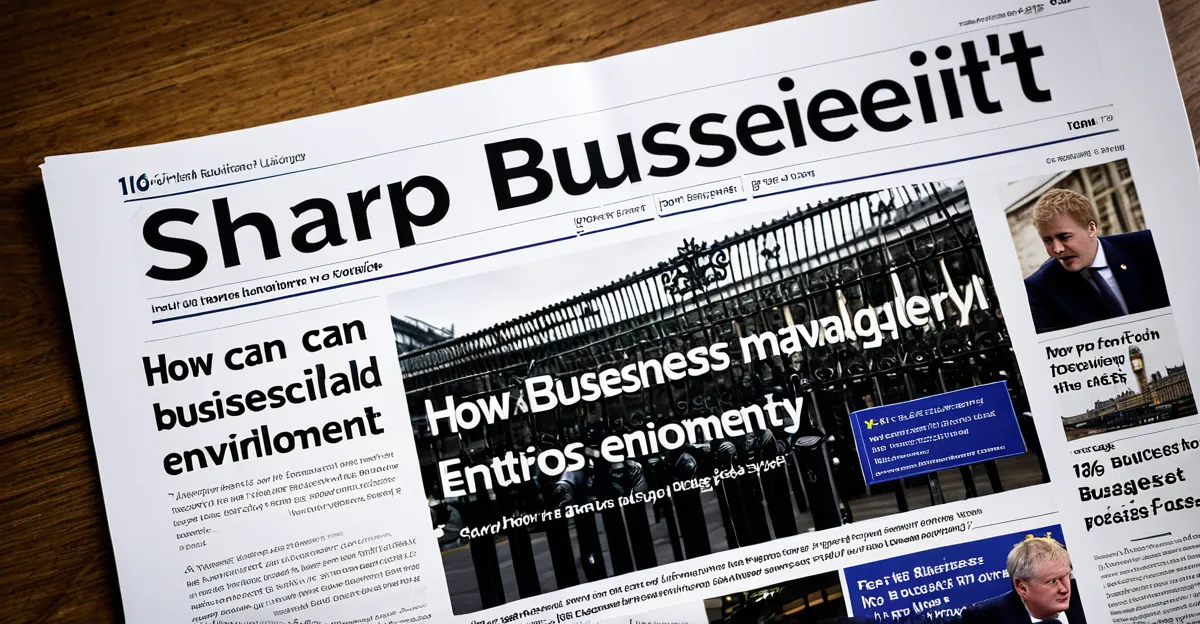Immediate Priorities for UK Businesses Post-Brexit
Efficient post-Brexit strategies start with a clear understanding of regulatory shifts. UK businesses must first evaluate key changes, such as new customs processes and product standards, which now directly impact daily operations. Prioritising compliance isn’t optional—business continuity depends on it. A structured approach to these adjustments reduces the risk of interruptions and costly penalties.
Identifying short-term risks and opportunities is critical. For example, some sectors face supply chain delays or increased tariffs, while others may explore markets outside the EU. Recognising these factors helps companies allocate resources effectively. Addressing Brexit challenges requires dynamic action plans that include updated compliance protocols, reassessing supplier contracts, and revising logistics workflows.
Additional reading : How Can Small Businesses Thrive in the UK’s Current Economic Climate?
Moreover, quick adaptation to these regulatory frameworks fosters resilience. Imagine a retailer adjusting inventory based on new import rules to avoid stock shortages. This practical shift aligns with business survival and growth.
Overall, immediate priorities revolve around analysing legal changes, establishing responsive compliance plans, and spotting emerging opportunities. These steps ensure UK businesses can navigate post-Brexit complexities with confidence and agility.
Also to see : What Emerging Trends Are Revolutionizing the UK Business Landscape?
Adapting to Evolving Trade Agreements
Let’s clarify the new Brexit trade agreements affecting UK businesses. Since the UK-EU Trade and Cooperation Agreement took effect, tariff-free trade exists but comes with increased customs checks and regulatory compliance. This shift means UK business adaptation requires updating sales and export strategies to meet UK-EU trade protocols while avoiding delays and unexpected costs.
How can businesses effectively explore opportunities beyond the EU? The UK has pursued several non-EU trade agreements, opening doors to markets in Asia, the Americas, and beyond. Companies can leverage these agreements by aligning product specifications with new standards and targeting emerging sectors. This strategic pivot creates growth potential amid Brexit challenges.
How should companies adapt their sales approach under these evolving frameworks? Incorporating flexible pricing, enhanced product documentation, and diversified customer bases helps sustain and grow market share. Regularly reviewing trade terms and transport logistics ensures compliance and competitiveness.
Ultimately, navigating international market access post-Brexit demands proactive adaptation to changing agreements. UK business adaptation involves balancing risks with new international trade opportunities while refining operations to fit the current global trade landscape.







